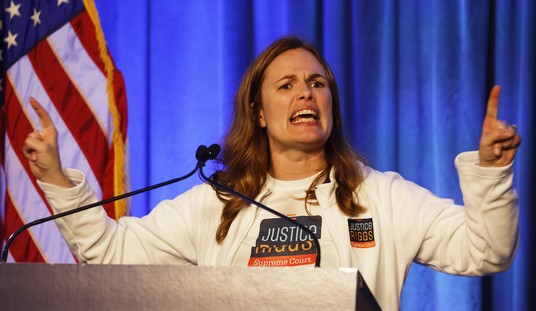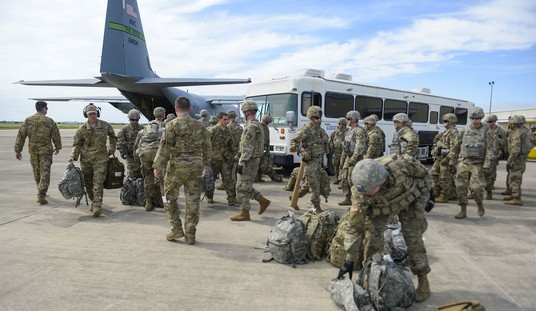I came across this post on X that really got me thinking about race relations, and kind of sent me back to my younger days when I was a kid watching television.
Back then, some of my favorite shows were black-led offerings like "The Fresh Prince of Bel-Air," "Family Matters," and "The Cosby Show." Thinking back on these shows now, they seemed entirely accessible. The fact that they were black was, of course, there and apparent, but what did it matter? These were families that could be related to no matter the race, and what's more, they featured great values that promoted success, common sense, and virtues.
There are two moments that really stick with me from these shows. One is from "The Cosby Show," and the other is from "Fresh Prince." Whatever you might think of its two leads at this point is irrelevant for the point of this article, and are another conversation entirely, though I do think these two men's actions did have an effect on the shows they were a part of.
The first actually happened in the pilot episode of "The Cosby Show." where Theo was trying to tell his dad that he is who he is, and Cliff should love him for it no matter what. This was during 1984, when the feelings crowd started to peek into existence in a big way and pop-psychology books like "I'm OK - You're OK" began influencing schools and parents alike. Cosby's 60-second response to Theo set that feelings movement back years.
"That is the dumbest thing I've ever heard in my life!" said Cliff, before going off on a rant about Theo doing his best.
It was a moment that subverted expectations, because, usually, these sitcom moments ended with hugs and sad music playing. Cosby lit all that on fire and told his son he wasn't going to coast because that's who he thought he was. He was going to buck up and put his best foot forward. He was going to put effort into being the best man he could be.
This wasn't a "black television show," it was a family television show. The fact that they were black wasn't at all the point. We were all tuning in because that wasn't a black family... that was us. All of us.
If you look me in the eyes and tell me that didn't do anything for racial relations in America, I would laugh in your face. The relatability at that moment was so off the charts that content of character truly shined over the color of skin. It was a moment that every parent could feel. The sentiment of "I love you for who you are, and that's exactly why I'm not letting you settle for less."
Then there was this scene from "Fresh Prince," where Carlton was trying to get into a black fraternity, and he was denied because of his wealthy background, apparently not acting black enough. When Carlton and Will went back to Uncle Phil to tell him, Phil openly shows his disdain for black people punishing others for being successful.
"When are we going to stop doing this to each other?" asked Phil.
Once again, we see a relatable moment in terms of having self-pride, but this time, people who aren't black got let in from the outside to see a cultural issue within the black community, and it's one we all sided with this black family on.
This clip is from 1993.
— Clyp Keeper (@DGrayTexas45) April 10, 2025
Can someone tell me what has changed since? pic.twitter.com/ApVKP0uF0K
This clip called out something that I think eventually ran rampant throughout our society. You could see the sentiment on the left, especially during Black Lives Matter. They were asking it about Barack Obama when he first started out.
"Is a black person black enough?"
This leftist sentiment of boxing in a black person to being of a certain mode of dress, attitude, income, and even manner of speech dominated our culture from the mid-aughts to today. Black entertainment changed from being about family values, aspirations of success, and the virtues of hard work and goodness.
Now, if you watch today's offerings such as "Atlanta," "Harlem," or "When They See Us," it's no longer about any of that, at least not up front. It's about the black experience, black pain, societal unfairness, and other social justice talking points. It often feels like these shows are having to prove they're black, instead of just being black and having a plot that focuses elsewhere other than skin color. In a way, it's almost trauma porn.
I can't help but see that as absolutely isolating. It's like it's trying to tell people they're alone, and if you're trying to play the societal game in the modern era, you're labeled a "sell out" (or worse names than that) just like Carlton was by the leader of the black fraternity.
And it's from that promotion of isolation that gulfs begin to develop between races. In an attempt to tell about the "authentic" black experience, it forgets to include the human experience.
If they attempted to put television shows like "The Cosby Show" on air today, would it actually survive the deluge of hate and negativity that would come its way? Would studios even be brave enough to try to air it?
I'm not so sure, and I consider that a massive tragedy for race relations. It feels like we're no longer allowed to relate.














